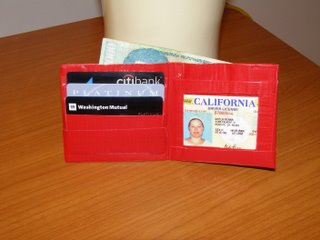Lightening from clear skies: In memoriam: Teta Kata and Phil Klein
Weeping thou sat’st while all around thee smiled;
So live, that sinking in thy last long sleep,
Calm thou mayst smile, while all around thee weep.
Sir William Jones (1746–1794), from Persian
____________________________________________________
I’ve only read about these situations. Within a half hour Thursday evening, I’d learned of the passing of two very lovely and exceptional people who were for countless reasons very dear to me.
The first was my grandmother’s sister “Teta Kata,” Aunt Kata in English. He name was Katarína, and Kata was the shortened version. The thing I remember about her most are the long summers we spent together in our cabin in the Low Tatra mountains in Slovakia.
One summer, Teta Kata’s granddaughter Ema, who is the same age as me and therefore made an ideal playmate, was at the cabin with us. Being in some peculiar childhood development stage, Ema thought she was a dragon and therefore had to sit on me and choke me. My Babi and Teta Kata had their hands full to keep me alive.
During the summers in Braväcovo my aunt, a botanical artist, not only went for long walks to sketch the picturesque vistas of the mountains, she also collected different species of flowers, plants and mushrooms and painted them in the cabin. One summer when I was little, she brought a poisonous plant to be painted for some book on botany and left it on the kitchen table in a vase. The plant consisted of a tall stalk that ended with four large leaves growing into a cross and revealing a large round blue berry in the middle. I ravenously loved blueberries and thinking that’s what the berry was, I ate it. Luckily, my mother noticed the missing berry and my soiled mouth and immediately had me throw up and drink some milk afterwards.
Of course, my memories of Teta Kata are not limited to my near-death experiences. I remember her as a beautiful, always fashionably but comfortably dressed old lady. She always presented a voracious intellect, sharp sense of humor and passionate love for her own and for my grandmother’s grandchildren. I remember the family gatherings at her garden near the Devín castle, where we played musical chairs in a tangible atmosphere of sweet life, love and family closeness.
During my childhood it was fashionable to have a so called “memory book,” which was a notebook with white pages where one’s friends and family drew pictures for the book’s owner to remember them by. These memory books were a source of great pride among ten-year-old girls, and we always carried them around looking through them and trying to outdo each other in the number of drawings in our books. When it was Teta Kata’s turn to draw something for me, as an artist, she painted a scene of a Greek coastal village on a piece of special paper, which she then glued into my memory book. None of the kids who looked into my memory book believed this painting was for real.
For every birthday, or other special occasion, Teta Kata always gave me a painting. As a kid, I was not able to appreciate it, but my Mom treasured these paintings and they are with her to this day for safekeeping. As a grown up, I proudly hang the painting of a magnolia flower she gave to Daniel and me for our wedding on a prominent wall in our home wherever it is.
My Babi who is a few years younger then my aunt is devastated. Teta Kata and she had always been the best of friends, which I believe was also visible in how alike they looked. With their similar way of dressing, same height and almost the same face and haircut, everyone thought they were twins. When I project the images of these two remarkable women in my mind, they represent authentic matriarchs and women I would like to be like one day. Now one of them is gone.
ZZZ
I learned of Dr. Phil Klein’s passing a half hour after I found out about my aunt’s death. I could not believe my eyes when I read the email. I had just written to him that morning thanking him for the praise of my blog, describing the Jewish community here and telling him I was looking forward to reading his writings about the happenings in Kesher Israel he was intending to start soon.
Always with a quiet voice, an incredibly clever, stinging but well meant wittiness; this fragile and gentle man made quite an impression on me, as I am sure he did on scores of others. I first met Phil and his charming wife Charlotte on a spring Shabbos morning after services at Kesher Israel shul, four years ago. I apparently made such a fantastic impression on them that they not only decided to visit Daniel and me in Slovakia to attend the famous New Years concert in Vienna with us, but also offered their fine-looking garden to us to hold our wedding ceremony. For logistics reasons this fell through, but we had the honor of Hakohen Phil recite the first two of the Sheva Brachos at our wedding.
During our short stint in Washington between postings in Bratislava and The Gambia, we were honored to be invited for a Shabbos meal during Phil and Charlotte’s fiftieth wedding anniversary. We heard many touching stories about Phil’s life on an upstate New York farm, Phil’s and Charlotte’s meeting and dating along with the viewing of pictures of their gorgeous wedding. The fact that they shared these intimate memories with us, along with their son Jonathan and daughter in law Shulamis, made me feel like a million dollars, as these fine people included us in their family.
While in The Gambia, I corresponded with Phil about interesting facts about the strange country we lived in, for he was always hungry for scientific, geographic or historic facts.
We had the pleasure to share several Shabbos meals with The Kleins over the past year in Washington. I always felt uplifted when I saw Phil coming to services on Shabbos morning, always very dignified with his cane and hat, above all when it was hot and he was sporting a striped black (or navy) and white crepe suit. For me, Phil represented the perishing race of New World gentlemen.
For many years, Phil had been the Baal Tokeah at Kesher Israel. Daniel remarked that he would have started blowing the shofar for the congregation starting tomorrow morning for the month of Elul heading to Rosh Hashanah and Yom Kippur. This year, I can imagine that Phil in his striped crepe suit will sound the tekiahs, teruahs and shvarims for the assembled host in shamayim.
The Kleins were one of the last people we visited on our last day in the US, several hours before boarding our flight to Armenia, July 25, 2006.









